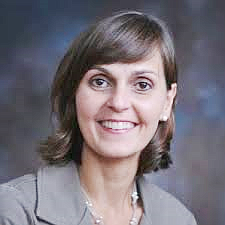Community Study Shows Access to Health Care and Rising Obesity Rates as Top Concerns
A six-week study, titled, Community Health Needs Assessment (CHNA), coordinated by Loyola University Health Systems (LUHS) revealed access to health care services and the increasing rate of obesity among top health care issues.
"Loyola University Health System has always taken its commitment to community health very seriously," said Nahlah Daddino, director of Community Benefit, LUHS. "Engaging in this comprehensive CHNA process with the steering committee has revealed valuable insights and information for our health system, as well as for the more than 200 health-related organizations throughout West Suburban Cook County to utilize in furthering community health work."
The report summarizes community statistics, health data and input about health issues from nearly 500 community residents, faith groups, social service agencies, physicians and others across 22 municipalities surrounding LUHS' two hospital sites: Loyola University Medical Center in Maywood and Gottlieb Memorial Hospital in Melrose Park and looked at broad health concerns and barriers facing the nearly 500,000 people in the CHNA service area bordered by Cicero, Berkeley, Franklin Park and Brookfield with special attention to vulnerable and disadvantaged populations.
Steering committee members identified access to health care services and the climbing rate of obesity as top health care priorities to be addressed. The committee came to this decision after reviewing the assessment findings and considering the scope and likelihood of impacting the problems at a local level. The assessment uncovered many health needs, disparities and resources as these key findings show:
Even in the age of the Affordable Care Act, according to the report, approximately half of the CHNA service area population, or about 250,000 people, were uninsured or underinsured (lack insurance that fully covers or provides access to services for their health needs) in LUHS’ fiscal year 2010.
Substantial disparities exist in the area’s socioeconomic status, unemployment rates, educational attainment and health status.
The Hispanic population is growing, and youth and senior populations dominate in certain CHNA service areas.
When compared with all Suburban Cook County, West Suburban Cook County fares worse in health status by most indicators, including having higher mortality rates for heart disease, cancer and stroke.
Respondents reported diabetes, high blood pressure, high cholesterol and being overweight or obese as some of their top health diagnoses.
Respondents named increased access to preventive and specialty health care services, coordination of care health care options, nutritional education, availability of healthy food, and safe places to play and economic stability as factors that could improve health in their communities.
There are more than 200 health care resources in the CHNA service area, including community health centers and other clinics, physician and medical group offices, outpatient surgery centers, hospitals, nursing homes and home-health agencies.
LUHS engaged the Illinois Public Health Institute, to promote improvement in public health, to assist in facilitating the process. In the year ahead, LUHS will develop approaches through enhancing existing programs and partnering with others on initiatives for improving access to health care services and reducing obesity.
The full CHNA report and its two data appendices are available at www.loyolamedicine.org/chna. Other hospitals, health care agencies, schools, community organizations and municipalities are encouraged to use the CHNA report as a guide for them in addressing West Suburban Cook County’s health priorities.
Latest Stories
- Congressional Black Caucus Condemns Pritzker For Heavy-Handing In Senate Race
- Officiants, Speakers, and Performers are Announced for Reverend Jesse L. Jackson’s Peoples Celebration of Life and Homegoing Services
- Illinois EPA Announces $1.5 Million in Funding Available for Energy Efficiency Upgrades at Public Water Supply Facilities
- As We Prepare to Lay Rev. Jackson to Rest, I’m Thinking About Words That Build Coalitions
- SOUTH CHICAGO RESIDENTS LAUNCH “SOUTHEAST NEIGHBORS FOR QUANTUM” IN SUPPORT OF HISTORIC ILLINOIS QUANTUM AND MICROELECTRONICS PARK DEVELOPMENT
Latest Podcast
MEDICAL POWER OF ATTORNEY



